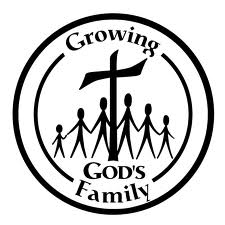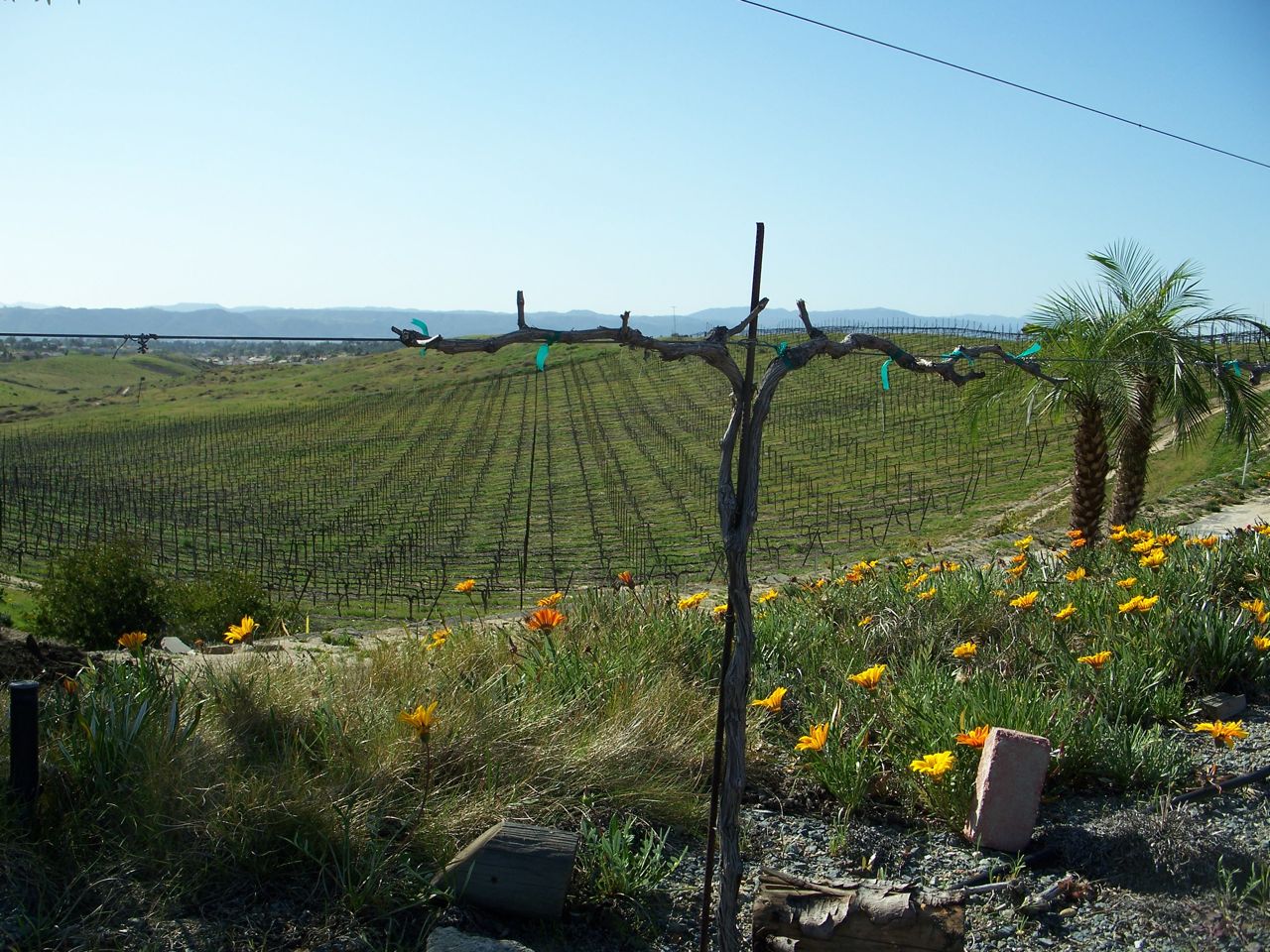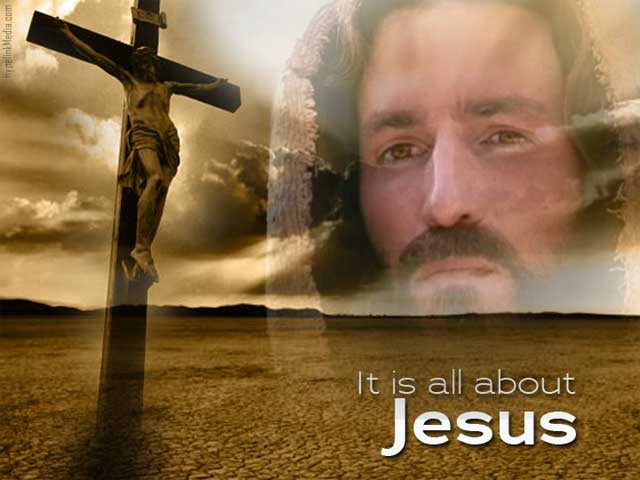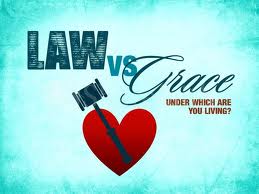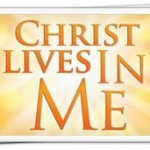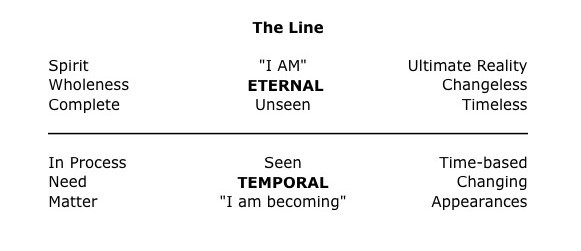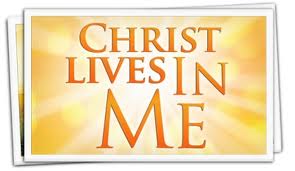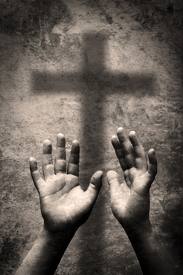This week, we looked at how we died united with Christ, were buried with Him,  and rose with Him to newness of life. Romans 6:3-6
We also saw that in our union with Christ on the Cross, we died to sin, the law, and self as our frame of reference. Rom 6:6-7; Rom 7:4,6; Gal 2:20
and rose with Him to newness of life. Romans 6:3-6
We also saw that in our union with Christ on the Cross, we died to sin, the law, and self as our frame of reference. Rom 6:6-7; Rom 7:4,6; Gal 2:20
As we come toward the end of our second week in The Rest of the Gospel, I'd like to share a former post that amplifies these points. May the Lord use all that we are reading and pondering to free us to live the life hidden with Christ in God. Col 3:3
Christ in us...our only hope that the glory of God may be manifest in our lives right here and now! Col 1:27b
++++++++++++++++++++++++++++++++

Caught in the Web
first posted July 2011
LOOK carefully! Can you see it? A perfectly formed circular spider web hanging across a path...suspended by a "thread"! This is the amazing sight my friend Penny and I happened upon early one morning as we were walking down some little-traveled paths in a wooded area in my neighborhood.
Here was one spider who was serious! She was ready to get a "good catch" that day!
There was a period of my life when I was a "good catch" in a craftily constructed web -- not made by earthly designs but that of the father of lies (John 8:44).
It started out with a series of real, and perhaps imagined, rejections...which then developed into a LIE. It wouldn't have been so bad if I had recognized it for what it was...but I didn't. And so I embraced it as truth and struggled for many years.
It caused me much pain, along with fear and confusion! It influenced my behavior! And it even started to poison other areas and relationships.
Finally, by the time I recognized it as a LIE, I was so bound up in it, that I couldn't get free. I prayed! I cried! I tried to act against it! I attempted the mental mind games! I asked my praying friends to pray! I asked my husband to pray! All in vain! UNTIL last summer...
I was reading & meditating in the little book of Colossians...preparing to teach it for the third time. (I told you I was a slow learner!)
I read,
Since you have been raised with Christ, keep seeking the things that are above, where Christ is, seated at the right hand of God...
For you have died, and your life is hidden with Christ in God... Colossians 3:1-3
All of a sudden in that moment, the Spirit of God brought the LIE to my mind, and with it came the realization:
"Wait a minute! I DIED to that LIE!"
That very moment, the power of that LIE was broken in my experience! Here I had been begging and pleading for the Lord to do something that He had already done through the Cross of Christ. But I had not recognized it by faith in my particular situation. Once I did, everything changed :) I was set free from the fear, confusion, the agonizing emotions that the LIE produced in me.
You may ask me how I know that this is true? The key is found in the little Scriptural word with. This little particular word in the Greek has the idea of intimate union--a union that nothing can break. Devotional writers of previous generations called this "the believer's mystical union with Christ" of which marriage is a picture (Ephesians 5:25-32).
One of my favorite Bible teachers Wayne Barber (of Precept Bible Studies fame) illustrates this life union by what he calls "Biscuits for Jesus." [I'm going to expand his illustration a bit to include all three words Greek words translated "with".]

There are certain ingredients that go into making biscuits: flour, salt, baking powder, milk, sugar (if you're Polish like me), and shortening (namely butter, if you're Polish like me). Anyway, as you gather the ingredients and place them next to each other on the kitchen counter, you could say that they are with each other (para, in the Greek), meaning alongside. Then if you take them and place them in a bowl one by one, you might say that the ingredients are with each other (meta, in the Greek), meaning closely associated with. At this point, each of the ingredients is separate from each other. Even in the bowl, you could skillfully separate the ingredients from each other to some extent.

BUT once you mix those ingredients together, roll them out and cut them, place them on the cookie sheet and bake them, there is no way you can separate those ingredients from each other. There is a mysterious union of ingredients called "biscuits" :) That's the Greek word sun, meaning united together with. And this little word is our word found in Colossians 3 (above) as well as these significant Scriptures (and many more):
I have been crucified with Christ. It is no longer I who live, but Christ who lives in me. And the life I now live in the flesh I live by faith in the Son of God who loved me and gave Himself for me. Galatians 2:20
Do you not know that all of us who have been baptized into Christ Jesus were baptized into his death? We were buried therefore with him by baptism into death, in order that, just as Christ was raised from the dead by the glory of the Father, we too might walk in newness of life.
For if we have been united with him in a death like his, we shall certainly be united with him in a resurrection like his. We know that our old self was crucified with him in order that the body of sin might be brought to nothing, so that we would no longer be enslaved to sin. For one who has died has been set free from sin. Now if we have died with Christ, we believe that we will also live with him.... So you also must consider yourselves dead to sin and alive to God in Christ Jesus. Romans 6:3-11 ESV
So what does this mean? It means that...
when Christ died, I died!
when Christ was buried, I was buried!
when Christ was raised, I was raised to newness of life!
And what did I die to?
I died to sin! (Col 2:13; Romans 6:3-14; Eph 2:1-7; 2Cor 5:21)
I died to self! (Gal 2:20; 2Cor 5:17; Rom 6:3-14)
I died to the flesh! (Col 2:11-12; Rom 8:1-10)
I died to the world! (Col 2:8; Gal 6:14)
I died to the Law ("to do list" religion)! (Rom 7:4,6; Gal 3:10,13,24-25; Col 2:14)
AND I died to the power of Satan, whose main tactics are lies and accusation! (Col 2:15; Heb 2:14-15; Eph 1:19-21;6:10ff)
So now when that nasty LIE and related accusations and condemnations rear their ugly heads, I just say "Wait a minute! I died to that! And I'm alive united with my Lord...adequate in and through Him to be what He has made me to be in this situation." (2Cor 2:15-16;3:5-6)
What lies, accusations, expectations, condemnations are you struggling with today, O child of God? You died to those! And now you live to walk in newness of life because of the One you are united with in His fulness!
So if you're serious about living this new resurrection life with Christ, act like it. Pursue the things over which Christ presides. Don't shuffle along, eyes to the ground, absorbed with the things right in front of you. Look up, and be alert to what is going on around Christ—that's where the action is. See things from his perspective.
Your old life is dead. Your new life, which is your real life—even though invisible to spectators—is with Christ in God. He is your life. When Christ (your real life, remember) shows up again on this earth, you'll show up, too—the real you, the glorious you. Meanwhile, be content with obscurity, like Christ. Colossians 3:1-4 MESSAGE
For an excerpt and ordering information, click here:




